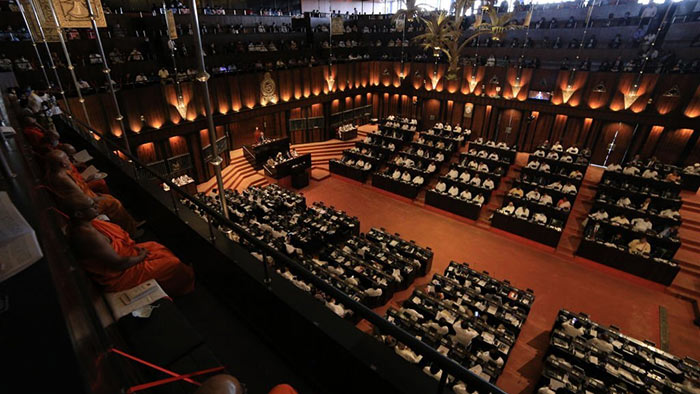Sri Lanka Parliament votes in favour of IMF’s Extended Fund Facility program

The Resolution for the Implementation of the Arrangement under the Extended Fund Facility (EFF) program of the International Monetary Fund (IMF) for Sri Lanka was passed in the Parliament of Sri Lanka today (April 28) after a three-day debate.
Speaker of House Mahinda Yapa Abeywardena announced that 120 Members of Parliament voted in favour of the proposal while 25 MPs voted against it.
The Speaker said accordingly the Sri Lanka Parliament has adopted the proposal.
The approval strengthens President Ranil Wickremesinghe’s hands as he holds tough debt restructuring negotiations with Sri Lanka’s external creditors and privatizes state-run enterprises under the program, approved by the IMF last month, in which nearly $3 billion will be disbursed in stages.
It will also determine how the country’s economy will be managed in the coming years.
Sri Lanka announced last year that it was suspending repayment of its foreign loans because of a severe foreign currency crisis resulting from the impact of the COVID-19 pandemic, excessive borrowing by the government, and efforts by the central bank to stabilize the Sri Lankan rupee by using scarce foreign reserves.
In introducing the proposal in Parliament on Wednesday, Ranil Wickremesinghe said the government is seeking to reduce the country’s debt by $17 billion through restructuring. He said Parliament’s support is vital for stabilizing the economy and later restarting its expansion because a 3% growth rate needs to be maintained for the country’s GDP to return to its 2019 level by 2028.
Ranil Wickremesinghe said the government’s debt, both local and foreign, totaled $83.6 billion when he took over as president last July.
He said loan restructuring talks will begin with India together with the Paris Club, a group of major creditor nations, and separately with China. It may be necessary to restructure loans obtained locally with proper safeguards for banks and employees’ provident funds from which the government has borrowed, he said.
Debt restructuring can take various forms, including bailouts, renegotiating terms of loans and writing off or reducing the amount owed for some loans.
Sri Lanka’s economic crisis, the worst in its history, caused severe shortages of food, medicine, fuel, cooking gas and electricity last year. That led to massive street protests that forced then-President Gotabaya Rajapaksa to flee the country and resign.
The economy has shown signs of improvement since Ranil Wickremesinghe took over as president last July. Shortages have been alleviated, power cuts have ended and the Sri Lankan rupee has begun to strengthen.
(With inputs from AP)

Latest Headlines in Sri Lanka
- Lal Kantha: Ranil was the only one who could manage economy after collapse April 13, 2025
- Sri Lanka Coast Guard launches 24-hour emergency hotline 106 for maritime safety April 13, 2025
- Sri Lanka President announces plan to restart Kantale Sugar Factory April 13, 2025
- Police shoot at fleeing hijacked car in Kotahena – suspect escapes April 13, 2025
- Large stock of ice and heroin seized at Kudawella harbor in Tangalle April 13, 2025


